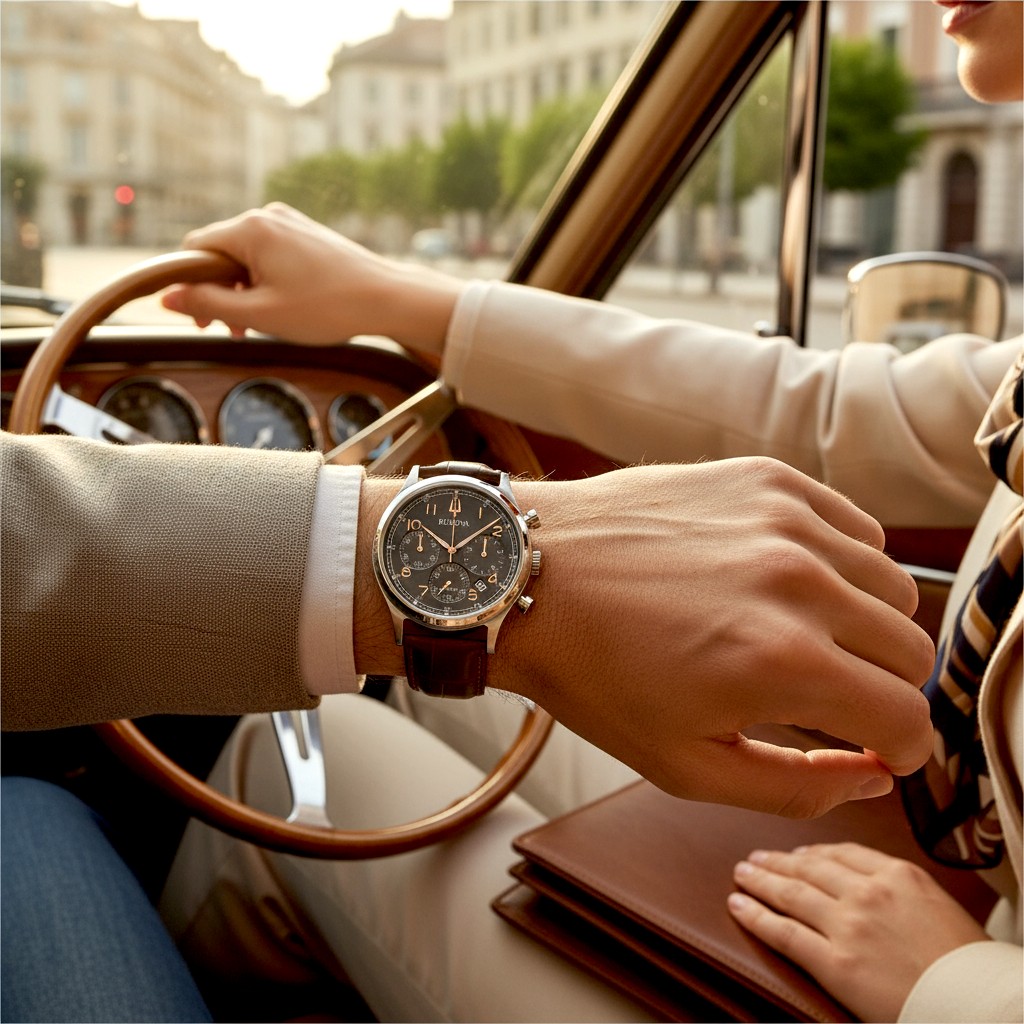Classic Watches vs. Smartwatches – Differences and Similarities
In the era of modern communication devices, many people ask themselves whether choosing a traditional watch still makes sense. While it's tempting to argue the superiority of classic solutions over electronic ones, it's worth taking a closer look at the subject. So, what distinguishes classic watches from smartwatches, and where do they overlap?
What is a Smartwatch?
A smartwatch, or intelligent watch, is an electronic device with versatile functionality. Beyond basic tasks like displaying the time and date, smartwatches connect with smartphones, adopting many of their features.
Smartwatches provide users with a range of useful information—such as incoming calls or text messages—and offer various applications like pedometers, pulse oximeters, and sleep analysis tools. The most advanced models can even track sleep quality.
A high-quality smartwatch can be an excellent accessory for active individuals who value staying connected at all times.
What Connects and Differentiates Watches and Smartwatches?
The characteristics of a classic watch are widely known. Built on a sophisticated mechanism, its primary function is to display the exact time. Like smartwatches, classic watches may include additional features. Here, we’ll highlight the key differences and similarities between the two.
-
Mechanism: Classic watches can use various mechanisms, with quartz being the most popular and convenient. Enthusiasts of traditional designs might prefer mechanical movements with automatic winding. A smartwatch, regardless of its sophistication, is always battery-powered, necessitating regular charging. High-quality models may require charging every 1–2 days.
-
Functionality: Smartwatches excel in providing access to a plethora of useful options that classic watches cannot match. However, many watchmakers enhance their timepieces with features like date displays, moon phase calendars (check out women’s watches from Certina!), or alarms and timers (popular in Casio watches).
-
Water Resistance: Many classic watches, especially those in sport/diver collections, are water-resistant to at least 100 meters or more. In contrast, smartwatches are more accurately described as water-sealed, meaning they can withstand swimming in pools or open water but may fail during deeper dives.
Conclusion
Both classic watches and smartwatches have their advantages and drawbacks. The choice between the two depends on your lifestyle and preferred style. However, it’s undoubtedly worth having at least one high-quality, branded classic watch in your collection—just in case your smartwatch runs out of battery!
See popular articles

Popular watches from films – what timepieces do we recognise from the screen?
Watches in films have had something magnetic about them for years – they can reveal more about a character than their words. Sometimes they're a symbol of strength, other times emotions or precision. From the tactical Suunto in "The Equalizer," through the elegant Panerai in "Transporter," to the iconic Hamilton in "Interstellar" – each of these models has been recorded in cinema history and gained legendary status. If you're wondering which watches from films are really worth knowing, this guide will let you look at cinema from a completely different perspective – one that's measured in seconds.

Is it acceptable to wear two watches? We explain why wearing two watches has become fashionable
Until recently it seemed like extravagance, today you see it more and more on the wrists of famous people – two watches on hands have become a new way to express style, emotions, and personality. For some it's a combination of tradition with modernity, for others – a practical solution and fashion statement. See why wearing two watches has stopped being controversial and become a trend that says more about you than you think.

Magnetised watch – what to do in such a situation?
Even the most accurate watch can suddenly start running fast or slow, with hands moving unpredictably. Often the culprit isn't a mechanism defect, but watch magnetization – a common phenomenon in a world full of electronics. Check how to recognize this problem, when a watch demagnetizer comes in handy, and how to safely demagnetize a watch to restore its precision.

What watches are similar to G-SHOCK? Discover alternatives to the timeless model from Casio
G-SHOCK has been synonymous with durability for years, but even the most iconic models have their competitors. Today, many brands offer watches that combine solid construction, resistance to extreme conditions and modern technologies – and at the same time stand out with their own style. If you're looking for something that rivals G-SHOCK but is more elegant, tactical or simply different, you've come to the right place. In this list, you'll find watches similar to G-SHOCK that will work in any situation – from a day in the city to a trip to the mountains.

What was the first watch in space? Find out what astronauts wear on their wrists
Did you know that the first watch that flew into space wasn't on a human wrist, but... attached to a dog's leg? The history of timepieces in space is a fascinating story of technological rivalry, astronaut courage, and extraordinary precision that could save lives. From the Soviet Pobeda and Gagarin's Sturmanskie to the legendary Omega Speedmaster, which passed NASA's most brutal tests – each of these watches became part of space exploration history. Discover what astronauts actually wear on their wrists and why even today, in the smartwatch era, they still choose mechanical legends.

What is GMT time and how can you use this function on your watch?
Not every watch shows only one time – some can do much more. The GMT function allows you to track the time in two or even three time zones simultaneously, making it ideal for travellers, pilots and people working internationally. But before you learn how it works and what the GMT time zone actually is, it's worth learning about its history – from Greenwich, London, to modern watches with the most advanced mechanisms.

Dlaczego zmieniamy czas na zimowy w zegarkach? Tłumaczymy mechanizm i historię zmiany czasu
Dwa razy w roku cofamy lub przesuwamy wskazówki zegara, ale rzadko zastanawiasz się, po co właściwie jest zmiana czasu i dlaczego wciąż jej przestrzegamy. To nie tylko kwestia tradycji – za tym zwyczajem stoi historia, decyzje polityczne i próba lepszego wykorzystania światła dziennego. Sprawdź, jak działa mechanizm przestawienia czasu, skąd się wziął i jakie ma znaczenie dziś.

Zegarki solarne - ranking ciekawych modeli i wszystko co warto wiedzieć przed zakupem
Zegarki solarne to nowoczesne połączenie stylu i praktyczności – zasilane światłem, niezawodne i przyjazne środowisku. Dzięki wbudowanym panelom solarnym nie wymagają regularnej wymiany baterii, co czyni je wyjątkowo wygodnymi w codziennym użytkowaniu i bardziej ekologicznymi. W naszym rankingu znajdziesz modele, które wyróżniają się nie tylko atrakcyjnym designem, ale również bogatą funkcjonalnością i imponującą trwałością, idealne dla wymagających użytkowników poszukujących zegarka na lata.

Jak zmienić czas na zimowy w Casio G Shock?
Zmiana czasu potrafi zamieszać – nie tylko w głowie, ale i na nadgarstku. Jeśli nosisz G-Shocka i chcesz szybko przestawić go na czas zimowy, nie musisz zagłębiać się w instrukcje ani zgadywać, który przycisk za co odpowiada. W tym poradniku znajdziesz konkretne wskazówki, proste kroki i sprawdzone triki, które pomogą Ci bez nerwów ustawić zegarek Casio G-Shock – niezależnie od modelu, który masz.











